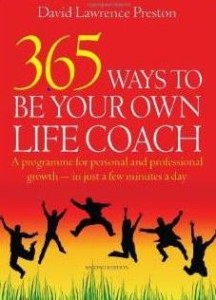Intuition is an inner guide that produces useful conclusions from limited data. It’s often referred to as ‘hunch’ or ‘sixth sense’. It has been referred to as a ‘receiving set’ through which ideas and thoughts flash into the mind.
Every brain is both a broadcasting and receiving station capable of picking up vibrations of thought from other brains. In addition, the brain subconsciously picks up signals from the environment. This is an ability we all have, not a special gift for a few.
Some intuitive ‘hits’ are obvious. We have an unsettled feeling in the solar plexus, a tight feeling in the neck and shoulders, stomach tension, a headache etc. Others are more subtle – a whispering voice, a subtle feeling that something isn’t right, and so on.
Many voices chatter away inside your head; many sensations affect your body. How do you know which of them are your intuition trying to steer you?
The first clue:
Intuition works best in silence. Like a triangle in an orchestra, it is rarely heard above the noise of the other instruments (i.e. environmental noise and your chattering conscious mind), but when the mind is quiet, there it is. Nor does it function well when you are feeling highly emotional: trying to tune in to your intuition when you are, say, angry or upset is like trying to hear a friend on the phone when people in the room are dancing to loud music.
The second clue:
Intuition usually reveals itself gently, quietly, little by little. Things happen which lead you in a certain direction, then one day, you look back and realise that your intuition had been at work.
The third clue:
Sometimes intuition reveals itself through dreams. Many dreams are of little consequence – they are simply the unconscious dealing with ‘unfinished business’ and cleaning out mental cobwebs while you are asleep. But memorable or recurring dreams may be a message from your intuition.
The fourth clue:
Another way in which intuition functions is through coincidences. It’s easy to dismiss coincidences as random chance, but often they’re your intuition prompting you. Often we fail to grasp their significance. Events are often linked in ways that we can’t see, because they go beyond the established laws of physics. Look in any newspaper and you’ll find stories about people who bump into strangers who go on to play a major part in their lives, or overhear a conversation that gives the clue to an unsolvable problem. Whenever something like this happens to you, take note and reflect on it. The more aware you are of the effect coincidences have on your life, the more able you are to make sense of them in the future.
Intuition versus emotion
I often hear people say, ‘Go with your feelings.’ This can be good advice, but be careful. Can we always trust our feelings? There is an enormous difference between a genuine intuitive feeling and an emotional feeling that arises from childhood conditioning or information misprocessing.
For example, you may have a choice of actions, but one of them fills you with trepidation. Is this because you have thought it through, or is it your intuition warning you, or an irrational fear programmed into your unconscious as a child?
How can you tell? The best way is to ask yourself:
- Does this feel right at gut level (‘gut feel’)? The body usually offers an accurate steer. A tight feeling in the neck and shoulders could be a warning to tread carefully or delay making a decision until you have more information.
We experience something physically a split second before we intellectualize about it. Often this first feeling turns out to be the most reliable, because the brain has not yet had time to come up with a calculated or habitual response. Train yourself to be attentive, and you will register the feeling before the cognitive apparatus clicks into gear.
- Also, be wary of ‘should’s and ‘shouldn’ts’. These and their close cousins ‘must’, ‘ought’, ‘have to’ etc. are usually indications of the ‘Parent’ voice – your programming and conditioning.
- Ask, ‘Which option would provide me with the greatest sense of satisfaction?’ The stronger the feeling of fulfillment and contentment, the more likely it is to be pure intuition.
Intuition never sleeps. Once you recognise and trust it, it’s like having a wise being inside you, always on hand to offer inspiration, guidance and support. The more you have faith in it, the more reliable it is. Trust it 50%, and it will reward you 50%. Trust it 100%, and it will reward you 100%.
You won’t always like what your intuition is telling you, though. When we hear an answer we don’t like, we pretend we haven’t heard. But beware: ignore your intuition at your peril. Not only will invite unhappiness and frustration into your experience, you’ll find yourself facing similar situations again until you get the point!
©David Lawrence Preston, 4.5.2016
Follow me on Facebook and Twitter @David_L_Preston
How to Books, 2004

Leave a Reply